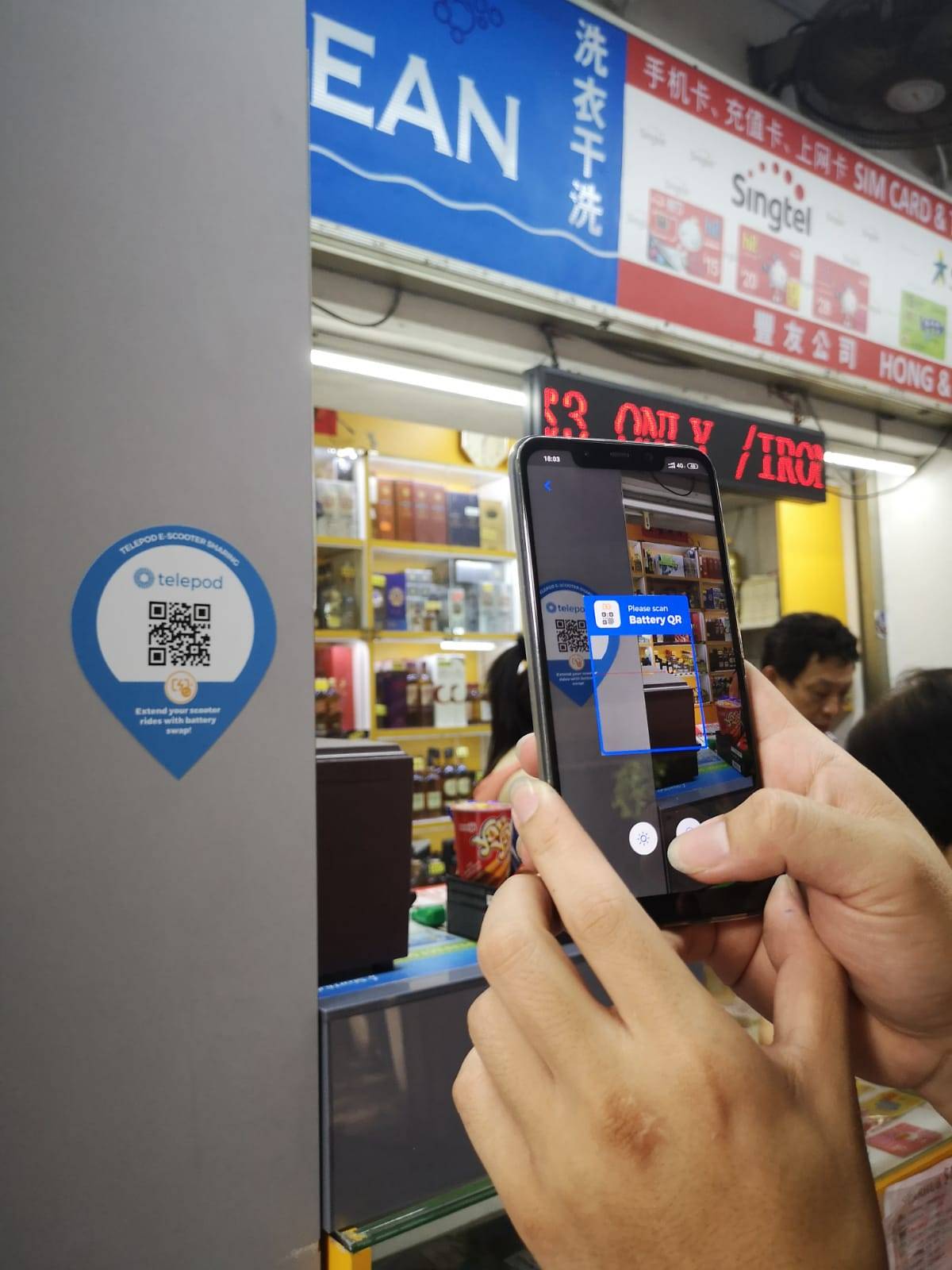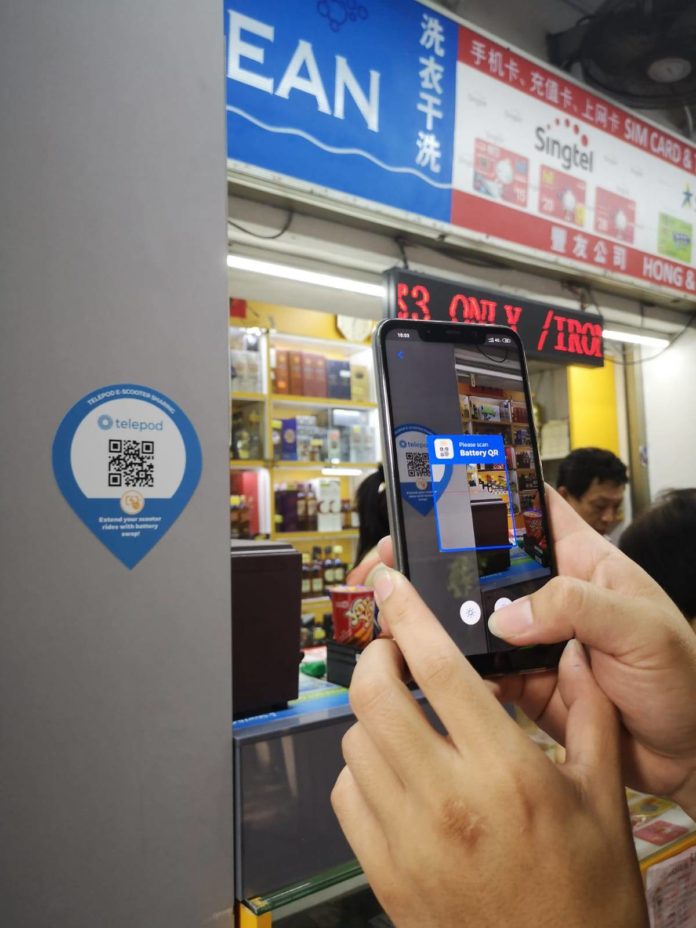SINGAPORE: Telepod is introducing a new swappable battery network and partnering with private operators to house its electric scooters, as it looks to grow its business amid regulatory challenges.
The operator, which launched in 2017, was charged in February under the Parking Places Act for providing personal mobility device-sharing services at public places without a licence or exemption. The Land Transport Authority (LTA) had also impounded 68 Telepod e-scooters that were illegally made available for hire at public places.
Telepod’s chief marketing officer Chan Jit Yen told CNA during a phone interview on Wednesday (Apr 10) that it has yet to receive a licence from LTA to offer its e-scooters for hire in public places and this “doesn’t help with business plans”.
The company was one of 10 who confirmed their intention to enter the shared mobility device space in Singapore.
To circumvent this, Telepod has partnered with private organisations to house its e-scooters, Ms Chan said.
There are currently about 50 e-scooter stations located within private spaces, and these include Suntec Singapore, the Singapore Management University and one-north, she added.
It currently has about “a few hundred” e-scooters in circulation, the executive said.
MORE JUICE FOR E-SCOOTERS

Telepod users will have scan the QR code at convenience stores offering the battery service to request for a swap. (Photo: Telepod)
Ms Chan also highlighted that Telepod is the first operator here to offer swappable batteries for e-scooters.
The service, called “Televery” and launched earlier this month, allows e-scooter riders who use it for delivery services, for example, to solve the problem of having to charge the batteries and losing the opportunity of earning money during that time.
READ: Food delivery PMD riders must comply with LTA rules, companies say
“On average, riders prefer to perform food deliveries for up to eight hours a day but, most e-scooter batteries available in the market can only last not more than two to three hours,” Telepod said in a separate press release.
“(This makes) it difficult for freelance riders to find an e-scooter that is able to serve their needs.”
Ms Chan said Telepod’s batteries have 30km mileage each when fully charged, and the swapping out process lasts “less than a minute”.
Telepod’s batteries, which are housed under the foot stand, can be swapped out in “less than a minute”, according to its CMO Chan Jit Yen. (Photo: Telepod)
There are currently “three to four” convenience stores in the Central Business District (CBD) area that are part of its battery swapping network, and each has about five batteries available.
This is just the start, Ms Chan said, as Telepod is currently speaking to bigger convenience stores operators such as Cheers and SPH Buzz to expand its network. It hopes to have about 10 such stores in the CBD area by the end of May, she added.
It has also partnered with food delivery service operator Foodpanda to offer the latter’s delivery riders better rates for using its e-scooters and the battery service.
Telepod offers a monthly delivery pass that costs S$150 for 30 days, giving the user up to 10 hours ride time daily, as well as a weekly delivery pass that costs $45 for seven days.
With the partnership, Foodpanda riders will get 20 per cent off the delivery pass prices, as well as 50 per cent off the cost of a battery swap, which is priced at S$3, Ms Chan said.
“By partnering with Telepod, we can now provide the option for Foodpanda riders on e-scooters to opt for battery swaps at selected convenience stores and enjoy a more efficient delivery experience as they overcome the challenge of time-consuming charging,” said Mr Luc Andreani, managing director of Foodpanda Singapore, in the press release.
There are also plans to expand Telepod’s business, including the battery swap service, to more places, Ms Chan said.
“We’re moving to expand to more campuses in Malaysia (it is currently in Johor Baru and Kuala Lumpur), as well as to regional markets like Thailand, South Korea and Japan, within the next 12 months,” she said.





